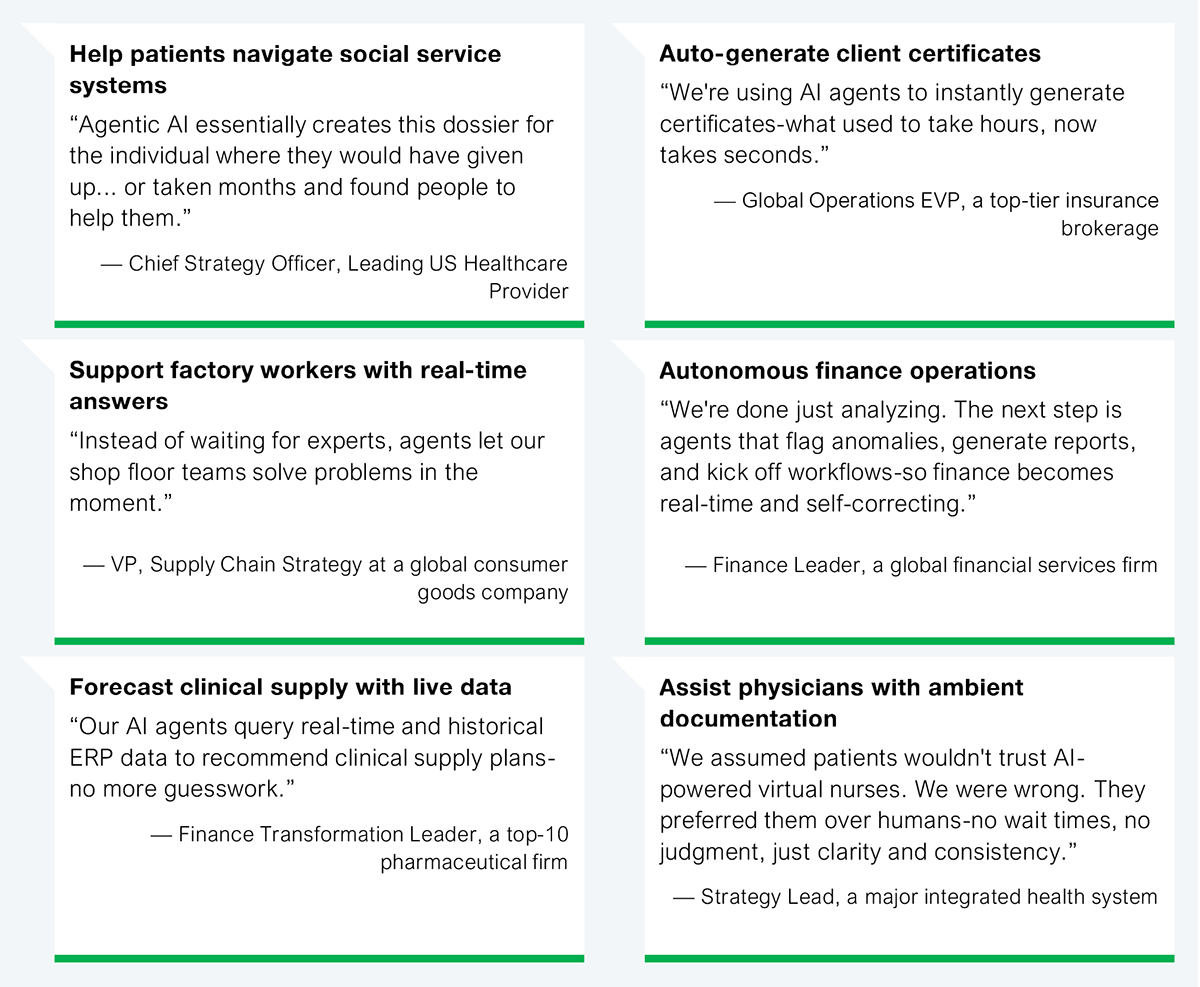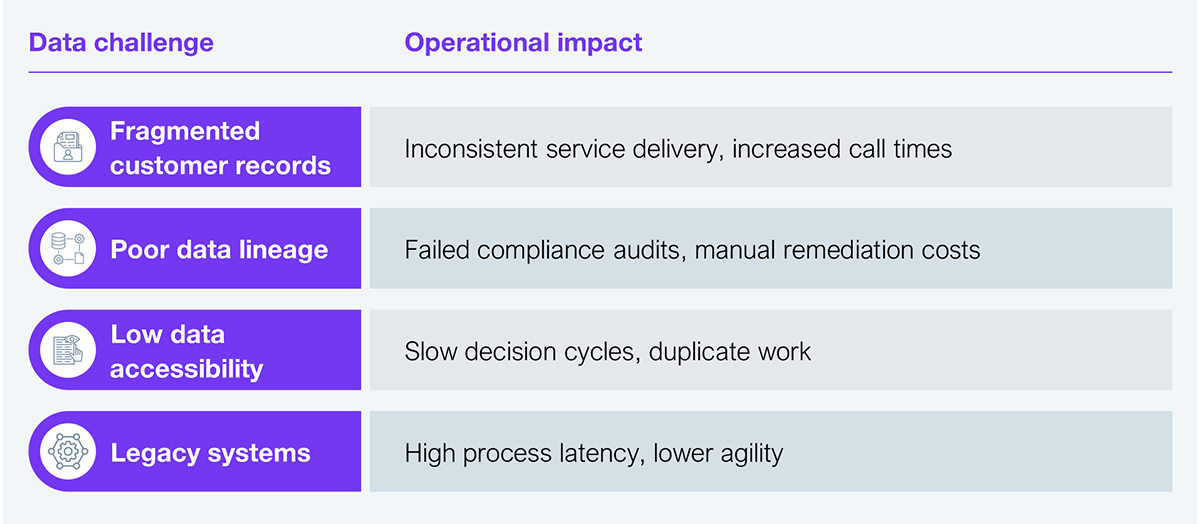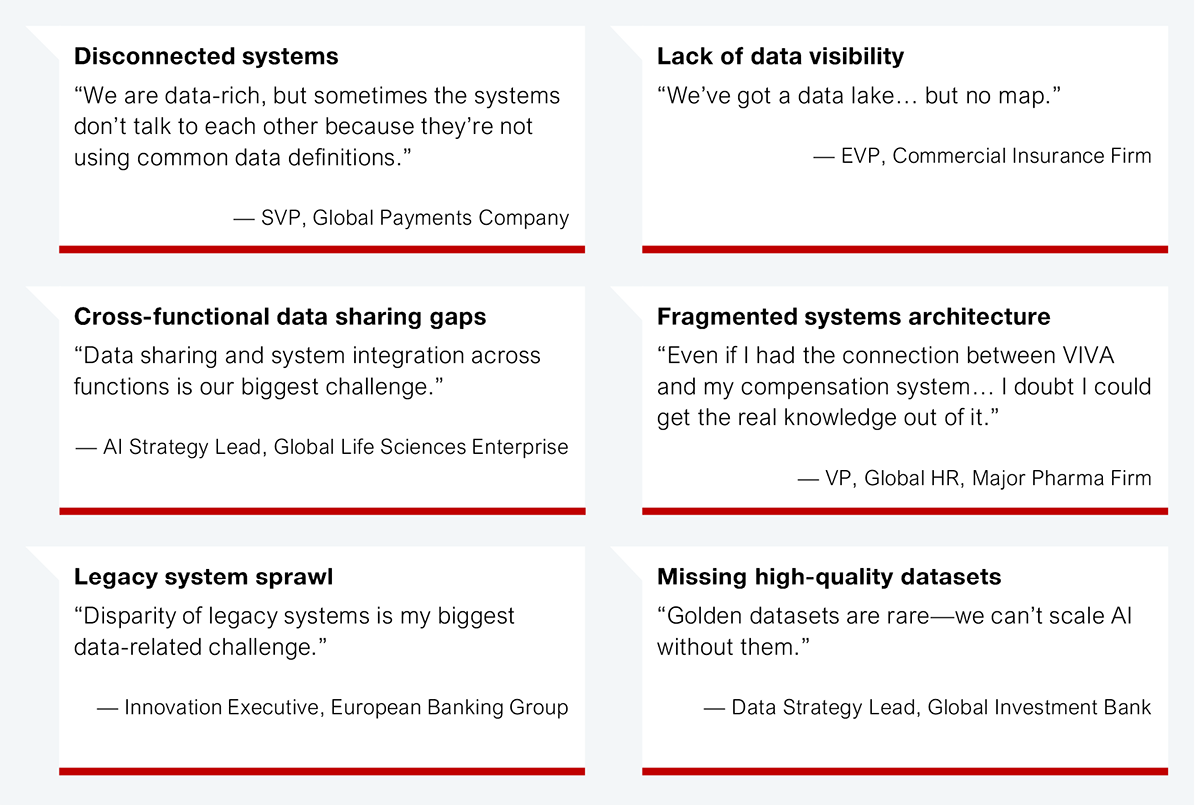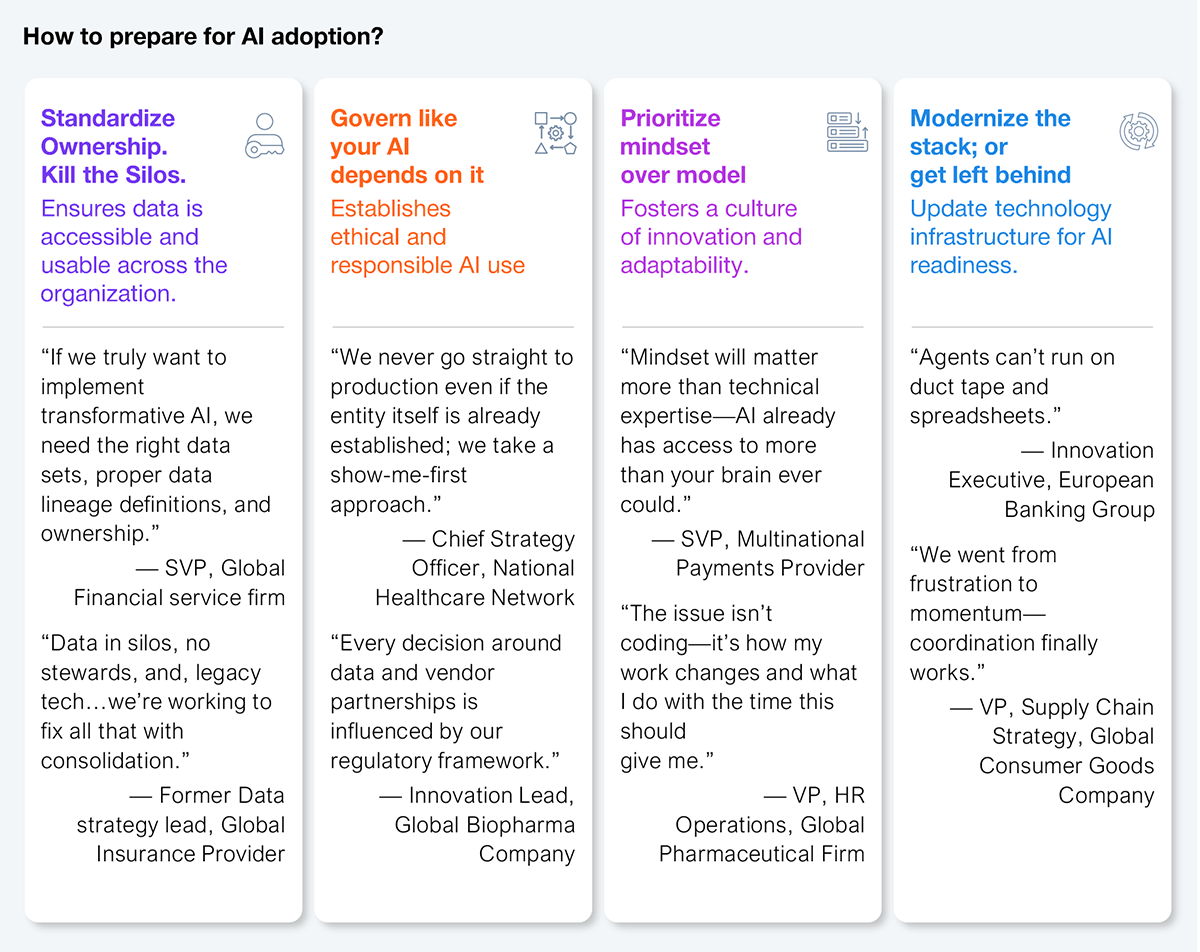
As agentic AI evolves from pilot experiments to a core operational cornerstone, operations leaders face a looming hurdle: the biggest barrier to AI success is the weight of legacy systems and outdated processes. The crushing weight of data debt and the accompanying process and cultural change requirements is stalling AI adoption and execution by creating inefficiencies, delays in action, regulatory risk, and erosion of customer trust. Real transformation will require bold action around modernization, integration, and major mindset shifts.
At an HFS Research NYC Roundtable in partnership with IBM, backed by exclusive interviews with senior enterprise tech and business leaders, we delved into the challenges. We heard pragmatic strategies from industry frontrunners who are successfully navigating these issues and reaping the rewards from AI.

Agentic AI—intelligent, autonomous software agents embedded directly into operational workflows—will be the driving force of the next decade of enterprise operations. As the interviews reveal, industry leaders see agentic AI as the key to moving beyond task-based automation toward orchestrating end-to-end processes that adapt, decide, and act (see Exhibit 1). By freeing people from repetitive, multi-step approvals and compliance checks, agentic AI unlocks true digital leverage, scaling knowledge and productivity far beyond the limits of traditional process automation. Done right, agentic AI promises not just to augment work, but to reimagine it. making operations faster, more resilient, and more human-centered in the face of ever-growing complexity.

Sample: Interviews with HFS OneCouncil members
Source: HFS Research in partnership with IBM, 2025
Despite being data-rich, most enterprises are action-poor. Disconnected systems, poor data visibility, and fragmented architectures prevent them from turning information into insight. For example, when identity verification systems are fed outdated or inconsistent customer records, customer onboarding process times increase, and compliance risks are raised. Exhibit 2 outlines some common data challenges and their negative impact on operations.

Source: HFS Research, 2025
Our roundtable delegates unanimously ranked their companies at a 3 out of 5 for AI readiness, which HFS reads as more than just humility. It’s a warning sign.
Despite billions spent on data platforms and digital transformation, enterprises still can’t translate data into decisions, plaguing AI adoption. Decision makers are flying blind when key metrics are pulled from disparate systems with inconsistent formatting. This ultimately undermines confidence in AI automations and hinders adoption. Our exclusive interviews with senior executives found that many of these decision makers are deeply frustrated with the data challenges they’re facing currently (See Exhibit 3).

Sample: Interviews with HFS OneCouncil members
Source: HFS Research in partnership with IBM, 2025
As savvy leaders have learned, agentic AI is not a plug-and-play upgrade. It’s a transformational shift that requires fundamentally reimagining how operations work. In addition to the data issues described, true readiness hinges on synchronized changes in process design and organizational culture. Leaders must solve for all three—data, process, and mindset—simultaneously.
One delegate pointed out that ‘data is an output, not an input,’ highlighting that the real issue lies in broken and outdated processes. Much like human workers, if processes are unclear, agents won’t work.
Glenn Finch, IBM’s managing partner for BFS, shared how IBM approached its agentic AI evolution. Rather than starting with technology or data, IBM identified a handful of mission-critical workflows and worked backward, leveraging existing data resources to build efficiency and intelligence into these processes. He states that starting with a process, working backwards, and fixing data as you go along is the only path to success.
“By starting with the process and addressing data debt along the way, IBM saw cycle time reductions of up to 30% in procurement and supply chain workflows, while improving auditability and resilience,” Glenn Finch, Global Managing Partner, Financial Services, IBM Consulting.
You can’t start with data because then you’ll be paralyzed. You need to start with the business case around transforming the process.
— Glenn Finch, IBM
Agentic AI is a systemic shift. These intelligent agents don’t just generate responses they interrogate data, automate decisions, and execute tasks within complex ecosystems. But that only works if those ecosystems are clean, connected, and context-aware. Glenn Finch called it “the Context of 1”— combining industry nuance and process specificity to enable high-efficacy agentic outcomes. That requires enterprises to stop chasing generic GenAI use cases and, instead, build for interoperability, retraining their processes around agentic systems that can seamlessly stitch together data and insights across silos, and act with precision inside dynamic environments. For example, in claims processing, knowing a customer’s full interaction history and policy specifics enables autonomous agents to resolve 70% of claims without escalation, drastically improving resolution times and satisfaction.
A culture of unclear roles and broken processes is at the heart of every AI challenge. Many data silo issues are directly related to a lack of ownership and accountability. As with processes, if your people aren’t ready, your AI won’t be either.
The leaders we heard from unanimously stressed mindset change and cultural buy-in over technical skills. Some emphasized that the real skill gap is adaptability, with change fatigue and organizational silos being common themes limiting progress, especially in large, regulated firms. Organizations favor cross-functional thinkers and adaptable leaders over deep technical experts. Internal upskilling, citizen development, and executive sponsorship are consistent adoption enablers.
Change management and adoption are key to breaking down the data and process silos, and so is an integral part of the mindset shift required prior to embarking on this journey.
— Rashmi Das, US Banking & Financial Markets Industry Leader, IBM
Executive leadership and transparency are essential for cultural change to happen. Success in AI initiatives is universally linked to visible, sustained leadership support, from CEOs hosting town halls to CFOs backing finance transformation.
Agentic AI will not succeed in disconnected, outdated, and culturally stagnant enterprises. The real race is not to deploy more AI agents, but to eliminate the data debt and process dysfunction that silently sabotage transformation efforts (see Exhibit 4).
To prepare for meaningful AI adoption, leaders must:

Source: HFS Research in partnership with IBM, 2025
Agentic operations are the new frontier of competitive advantage, but no enterprise will win while crippled by unresolved data debt and legacy complexity. Agentic AI is the future of operations—but that future won’t arrive on legacy foundations. To unlock real value, leaders must confront data debt, rethink processes, and create a culture of adaptability. The time for experimentation is over. It’s time for action.
Register now for immediate access of HFS' research, data and forward looking trends.
Get StartedIf you don't have an account, Register here |
Register now for immediate access of HFS' research, data and forward looking trends.
Get Started